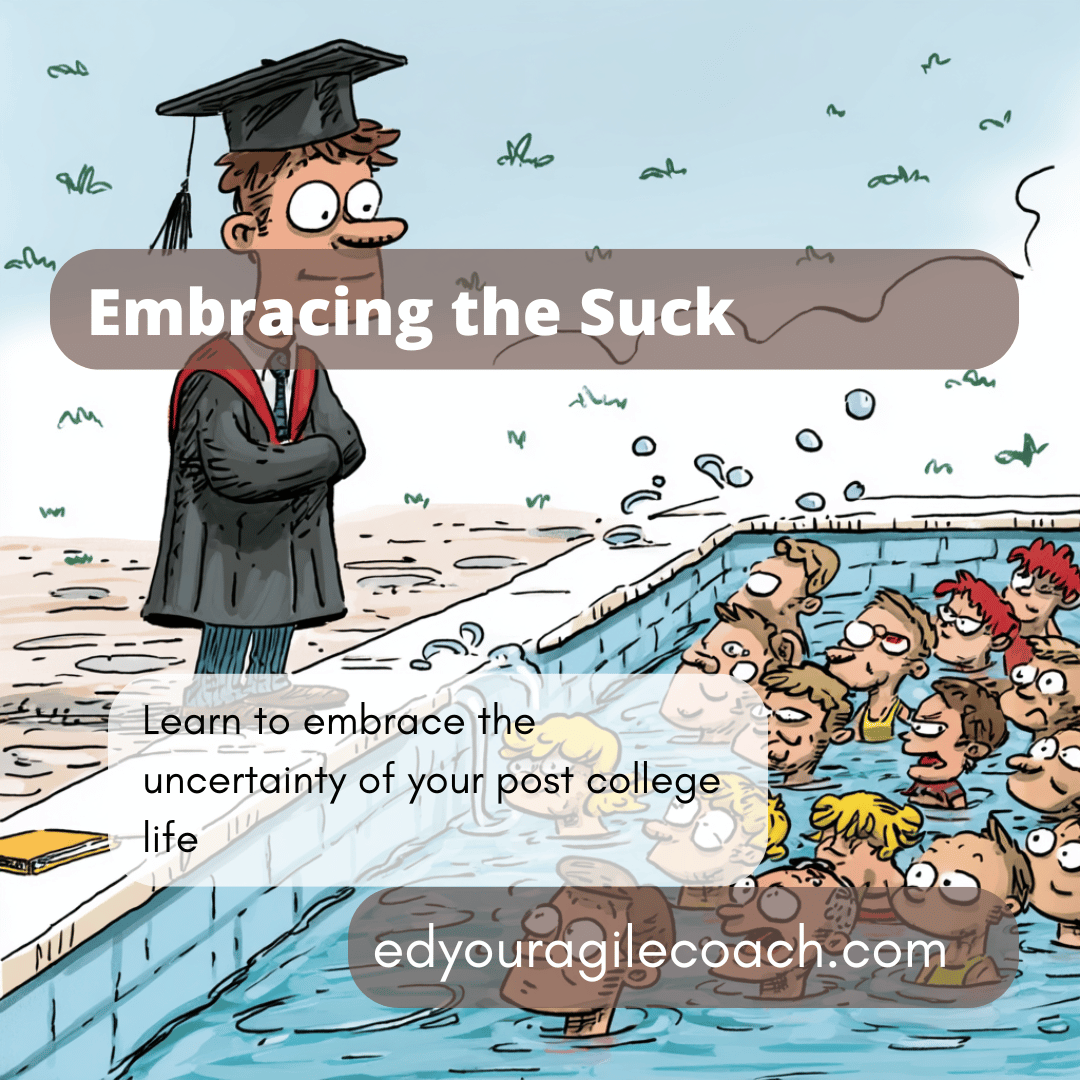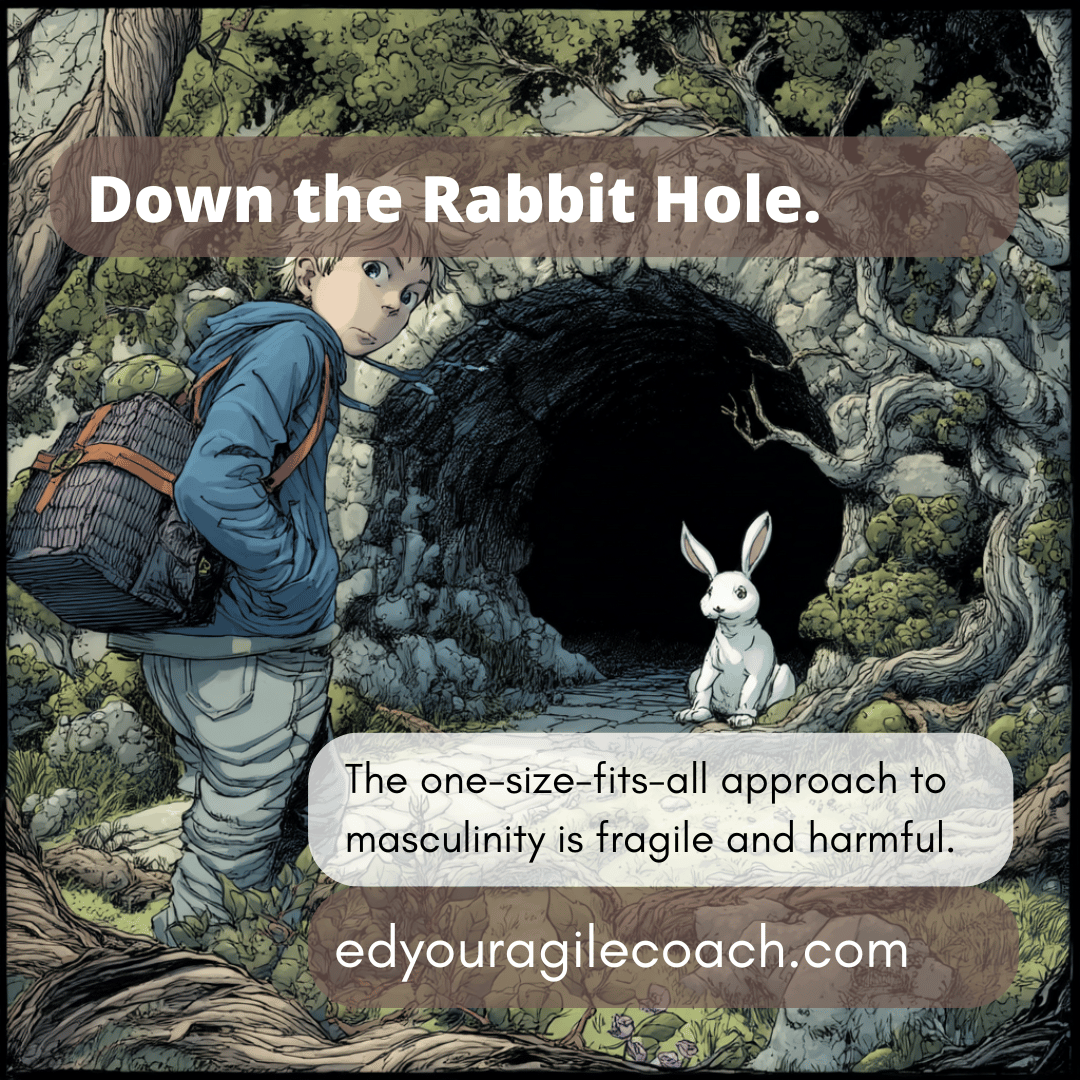Navigating your life after graduation.

It is finally beginning to look like spring in the Midwest. March is often gray and muddy, and April teases us with days that foreshadow pleasant weather. It is why the month of May truly feels like spring. The trees are bursting with blossoms and tender green now, and I can finally switch off the heat, letting the cool night air drift through open windows. I also recognize that college students are wrapping up final exams, which is commencement season. I have always fantasized about being a commencement speaker. A few times on this blog, I have posted sample speeches.
College transformed me and gave me skills to succeed, which I did not think I would need for the remainder of my life. With thirty-five years in the rearview mirror, since I walked my first college commencement, I feel the compulsion to offer some gentle suggestions to the class of 2025.
Embrace the suck –
The graduating class of 2025 is going to face an uphill battle when it comes to careers and economic independence. The current trade wars and the swirling economic uncertainty will make finding a well-paying job a hassle. The first five to ten years after college often see you toiling in underemployment, where you take on roles that don't use your education and pay very little. It is an awful time of uncertainty and disappointment.
It is also a critical time that tests your character. You learn essential survival skills in the workforce and will finally experience failure. Your immediate life after college will be a challenge filled with career, romantic, and personal failure. How you respond to those setbacks and the lessons you learn will affect you for the remainder of your life.
My grandfather scolded me during this period, saying I was pushing too hard. What I wanted in my life, a career, a home, and a spouse, would come if I did the work and did not make hasty choices. Being young and impatient, I ignored that guidance. Things are going to suck when you get out of school. Marines have a phrase when situations are difficult. They say, "Embrace the suck," which is an approach to life that will help you get through these awkward and aggravating moments.
Your choices are wide open, and you should use these moments to try things and pivot when they do not work out. I was convinced I would work in radio when I got out of college. Eighteen months later, I was gone from the business and figuring out what to do with the remainder of my life. The experience left a few scars, but I should have adopted more of a growth mindset and embraced the suck early. I would have avoided some poor decisions and recovered sooner.
After a while, when you survive the experience, you will wear it like a badge of honor. I was at an after-hours with a colleague discussing my career mishaps, and they provided me with a healthy reality check. She reminded me that she graduated in 2008, and the banking system was melting. I ensured she did not pay for a drink the rest of the evening. A few years from now, you will observe how you muddled through the trade wars of 2025.
Don't fall for fragile masculinity –
One of the biggest trends over the last ten years is what author Richard V. Reeves called the crisis of men. In his book "On Men and Boys," he points out that men who do not have a college education struggle in American culture. Men without degrees have worse marriage and career prospects. The cohort also suffers disproportionately from worse health outcomes and increasing deaths of despair. I suspect plenty of factors are involved here, but I do not blame growing opportunities for women for this trend. Instead, we must understand the cultural forces hurting men and boys.
Former kickboxer Andrew Tate pioneered one of those forces. Tate and his copycats online promote what I like to call fragile masculinity. The founding principle is that the only way to achieve happiness is to project a hyper-masculine persona of wealth, dominance, and physical attractiveness. It is catnip for men and boys who are sexually frustrated and struggling to find a place in society. You can aspire to be an alpha male with the correct brand of body spray, gold chains, and money.
I call this type of masculinity fragile because it does not hold up to more mundane realities of life. Women and other men recoil from abuse and narcissism. Often, this 'manosphere' is interested in self-serving and selfish pursuits where gender roles look like something out of a Stephen Segal movie rather than our contemporary time. The masculine energy they seek is a dead end emotionally and socially. It fosters resentment and hostility toward others who do not conform to this narrow view.
I have struggled with this my entire life because I am not a traditionally masculine person. I struggle in athletics and am nerdy and bookish. Many of my male peers considered me less than they were because of my non-conformance. It might explain why I support LGBTQ+ rights because I understand the ostracism and emotional pain of not fitting into a neat category. It is why we should respect all sorts of masculinity, from the extremes of the manosphere to the warm encouragement of people like Fred Rodgers. There is not a single way to be a man, and the fragile masculinity that is currently in fashion is ultimately destructive.
Grit and Growth Trump Tallent –
Finally, recognize that you will always be in a consistent state of flux. Just because you have finished college does not mean you are a finished product or have peaked. According to insurance actuary tables, you have an additional sixty years of life. You will learn new things, and technology will transform multiple times during your lifetime. I was born before the founding of the commercial internet, and when my radio career collapsed, I pivoted to learning how to write code. Today, I am learning how to work with Artificial Intelligence because I understand it will become a powerful influence in the business community.
The most critical skills you learned in college are not the skills you gained in the classroom but the learning process itself. If necessary, you can retrain yourself when technology and market conditions change. You will face failure and adversity and approach it with the same toughness you approached your classwork.
Accept that you will always learn new things, change your perspectives when necessary, and evolve. I am different from the person who graduated 35 years ago, and I recognize that many of those changes were for the better.
Conclusion –
I have made many mistakes in my life and career. Fortunately, none were extreme enough to prevent me from sleeping at night or looking at myself in the mirror. I want to spend some time helping others avoid some of the mishaps I experience. It is why I am suggesting that after commencement, you embrace the suck of your early adulthood, avoid the allure of fragile masculinity, and embrace the growth and change which are going to be a natural part of life. It took me a long time to acquire this wisdom, and I hope you use it to inform your post-graduation experience. Congratulations, class of 2025, and get 'em.
Until next time.
Song has aged pretty well.




Comments ()